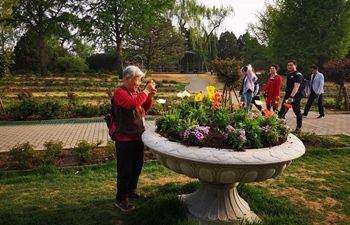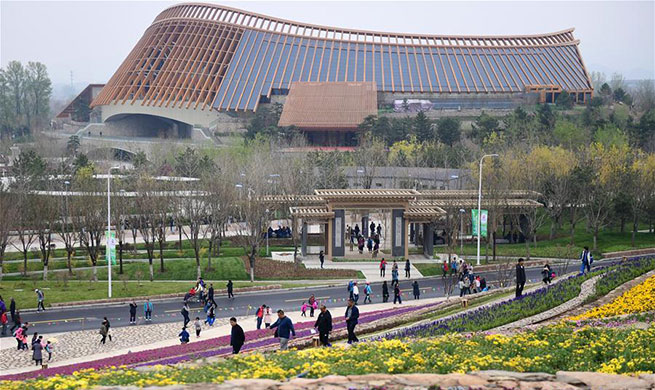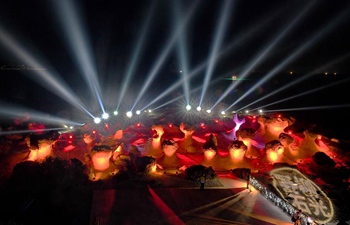ROME, April 21 (Xinhua) -- Every year on this day, the city of Rome takes a step back through the centuries.
According to legend, Rome was founded on April 21, 753 B.C. Twin boys, Romulus and Remus, were abandoned by their family and left on the banks of the Tiber River, which runs through the heart of modern Rome. The boys' mother was a princess and their father was a god, and the mother's family feared a prophecy that they would grow up to overthrow the political power of their family.
Legend says they were found on the riverbed by a wolf, who fed them until a shepherd discovered them and raised them as his children. As young adults, they decided to found a city but they argued over where it should be based, and the brothers fought to the death. Romulus won and 2,772 years ago, on April 21, he founded the city that bears his name.
Today, that anniversary is celebrated each year starting in Circus Maximus, a former Roman-era racetrack that lies in a low area between the Palatine and Aventine hills. This year, plans included special ceremonies, live music, readings, a photo exhibition, demonstrations of ancient rituals, and exhibits of replicas of Roman-era tools and coins.
But the centerpiece of the celebration was a parade of more than 2,000 legionaries, centurions, senators, gladiators, vestals, priestesses, nobles, and workers -- all in full Roman-era costumes.
"It's a lot of fun to dress up and participate," Gian Domenico Alfonsi, a captain in one of the regiments of legionaries -- the name for rank-and-file Roman soldiers, told Xinhua. "But the main motivation for most of the people here is to honor our city's rich history and make sure that school children, tourists, and visitors are familiar with our city's origins."
The 39-year-old Alfonsi, a police officer by profession, has been participating in April 21 celebrations for more than a dozen years. This is the first year his 13-year-old son, Marco, is participating with him. Marco was dressed as a stable hand.
"Just like the history of Rome is handed down over the centuries, these traditions are handed down from generation to generation," Alfonsi said.
According to author Mark Adriano, a historian specializing in ancient civilizations at the University of Paris, residents in cities with long, rich histories feel a strong connection to events that took place centuries or even millennia before.
"You can speak to Romans who have no professional connection with history, a taxi driver or a barista, and they will have a sense of what their city has been through, the layers of history that are beneath their feet," Adriano said in an interview. "It's part of a city's cultural identity."












